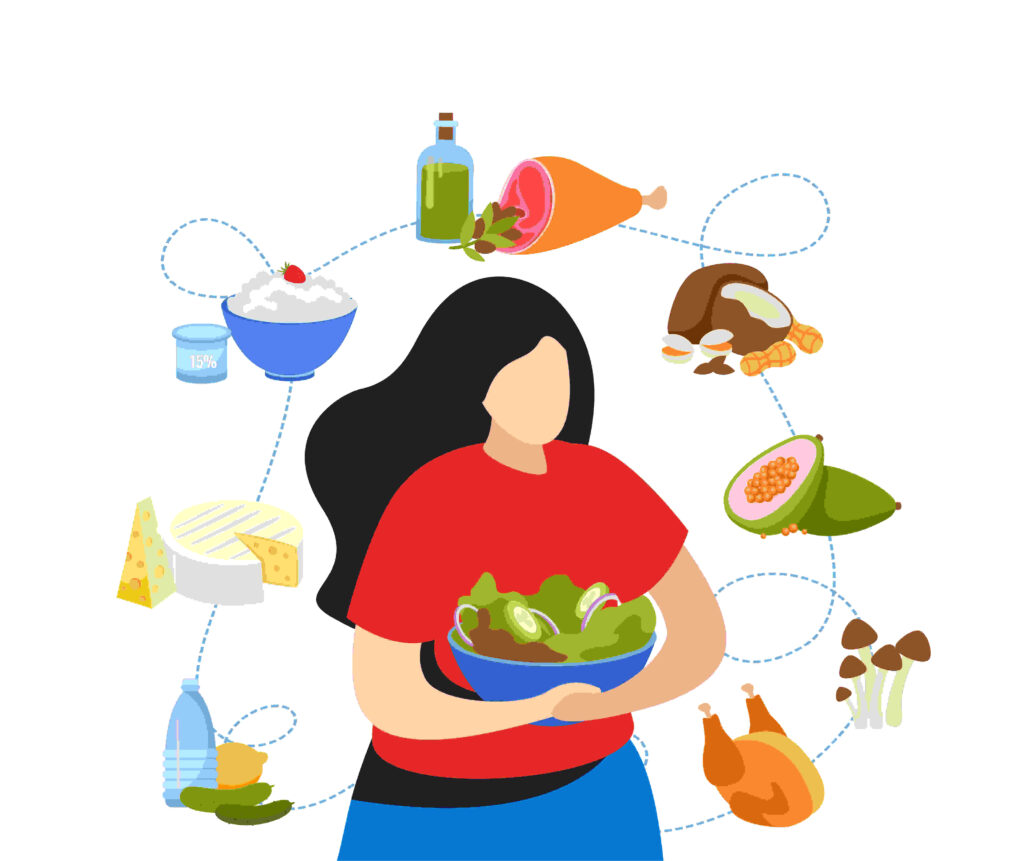In a dynamic era where the collective consciousness leans towards environmental responsibility and individual well-being, our dietary choices wield unprecedented influence on personal health and the planet’s future. Among the dietary paradigms gaining rapid traction is the plant-based diet—a lifestyle not just synonymous with nourishing your body but also synonymous with fostering a sustainable and eco-friendly future.
The Phenomenon of Plant-Based Diets
The essence of plant-based diets lies in the prioritization of plant-derived foods such as fruits, vegetables, grains, nuts, and seeds, often with a significant reduction or elimination of animal products. This dietary shift transcends a mere trend; it’s a lifestyle choice that not only boasts remarkable health benefits but also serves as a crucial player in the quest for environmental sustainability.
1. Health Benefits:
Scientific literature champions the myriad health advantages associated with plant-based diets. These dietary choices have been linked to a reduced risk of chronic diseases, including heart disease, diabetes, and specific cancers. Bursting with essential vitamins, minerals, and antioxidants, plant-based foods form a foundation for overall well-being, contributing to heightened energy levels and effective weight management.
2. Environmental Impact:
Opting for a plant-based diet aligns seamlessly with environmental consciousness. Livestock agriculture, a significant contributor to deforestation, greenhouse gas emissions, and water pollution, is curtailed by the adoption of plant-based alternatives. Individuals embracing plant-based diets actively participate in reducing their carbon footprint, thus promoting sustainable land use and responsible consumption.
Sustainable Eating: Beyond Plant-Based Diets
Sustainable eating transcends the binary choice of plant-based versus animal-based diets. It encompasses a holistic approach to food, considering the environmental, social, and economic ramifications of dietary choices.
1. Local and Seasonal Choices:
A cornerstone of sustainable eating involves supporting local farmers and opting for seasonal produce. This not only minimizes the carbon footprint associated with transportation and storage but also fosters resilient and sustainable local food systems.
2. Minimizing Food Waste:
Sustainable eating places a spotlight on minimizing food waste, a global issue of colossal proportions. Mindful meal planning, creative utilization of leftovers, and support for initiatives redistributing surplus food contribute to a more sustainable and ethical approach to consumption.
3. Mindful Consumption:
Practicing mindful eating, considering portion sizes, and making intentional choices about food consumption reduce overconsumption and its associated environmental impact. Choosing products with minimal packaging and steering clear of single-use plastics aligns with the ethos of sustainable eating.
Practical Tips for Making the Transition
1. Gradual Changes:
Transitioning to a plant-based or more sustainable diet is not a sprint but a marathon. Gradual changes, such as incorporating Meatless Mondays or experimenting with new plant-based recipes, make the process sustainable and enjoyable over the long term.
2. Educate Yourself:
Knowledge is power, especially when it comes to understanding the environmental and health implications of different food choices. Informed decisions aligned with personal values form the bedrock of a sustainable and conscious dietary lifestyle.
3. Connect with Community:
Joining a community of like-minded individuals provides invaluable support, shared resources, and inspiration. Whether through online forums or local groups, connecting with others on a similar journey makes sustainable eating more accessible and enjoyable.
Conclusion: Sowing Seeds for a Nourishing Future
Embracing plant-based diets and the power-of-gut-friendly diet is not merely an individual choice; it is a collective journey towards a healthier planet for current and future generations. Each mindful choice, whether in the food we consume or the lifestyle we adopt, contributes to a more sustainable and compassionate world. Nourishing ourselves with plant-based, eco-friendly foods, including the power-of-gut-friendly diet, is a powerful stride towards a future where both individuals and the planet thrive in harmonious coexistence. As we navigate this collective journey, let each intentional choice serve as a guiding star toward a future where our plates reflect not only our well-being but also the well-being of the entire planet.
With every deliberate decision, we cultivate a sustainable culinary landscape, sowing the seeds for a future where our choices are not just mindful but also transformative, fostering a holistic harmony between personal health and the health of our precious planet.



